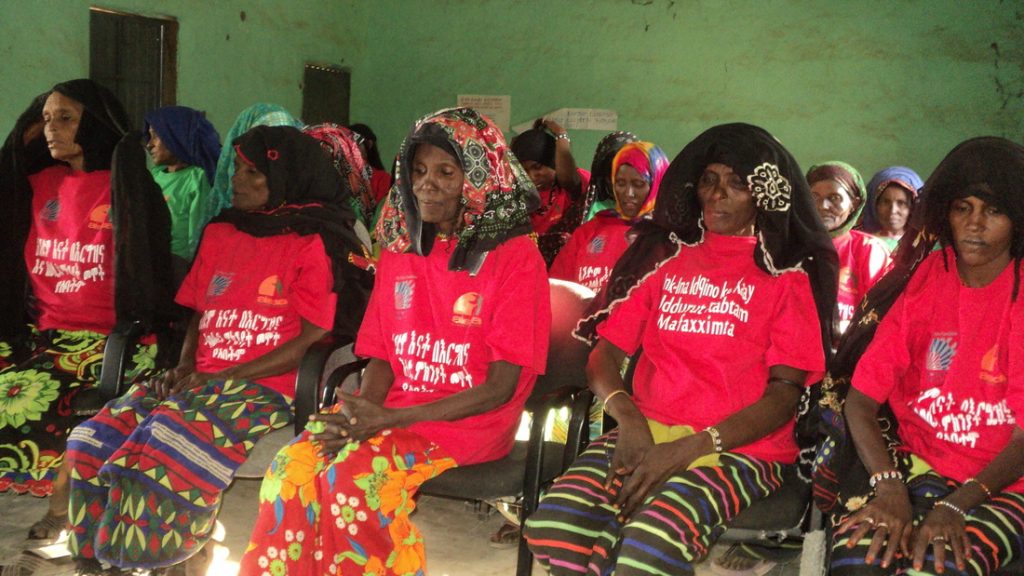what we do
How AISDA manages Humanitarian Works
AISDA applies major standards that are accepted internationally. Sphere minimum standards (we have certified staff), Core Humanitarian Standards (CHS) that has now become the mother of all international standards in the humanitarian sector. The Code of Conduct adopted by the International Red cross and Red Crescent Movement; and Humanitarian Charter are some of the major recognized and accepted documents in AISDA. AISDA is always committed to doing its humanitarian action in the lens of the four major humanitarian principles (Humanity, neutrality, impartiality and independence).
Networking and Coordination
AISDA has been working hand in glove with the regional emergency response as well as response planning coordination team comprised of governmental and non-governmental organization working in humanitarian response and recovery in the Afar regional state.
Localization and advocacy for humanitarian Access
Because of our keen need for the implementation of the Grand Bargain initiative for localization of aid and quality funding, we are an active member of the Charter for Change (C4C) and the Network for Empowered Aid Response (NEAR). AISDA has been actively participating as a pannalist internationally in the advocacy of localization of aid and realization of the Grand bargain which is part of negotiating humanitarian access in conflict zones like what is happening in Ethiopia. AISDA has also assigned a full time focal person for national and international engagement and advocacy for Localization. AISDA is a member of Save The Children International Ethiopia’s Local Advisory Councils for Localization agenda and the ED is the deputy Chair of the LAC.
1.Invitation_and_Programme_VENRO_Event_The_Grand_Bargain_2.0_final(1)
Promoting Gender Equality
AISDA has a Gender, Culture and Disability (GCD) Inclusiveness policy. AISDA implements its policy and promotes cultural inclusiveness with its various project beneficiaries. So, our organization considers various population groups such as women and men, girls and boys, people living with disabilities, elderly to ensure inclusiveness and they benefit from the projects.
HEALTH AND NUTRITION
Afar is one of the least developed regions with the highest health and nutrition gaps. To avert the situation, since its establishment, AISDA has been implementing successful projects both in the areas of health and nutrition.


RESILIENCE BUILING
Afar is the driest region in Ethiopia with higher average temperature, low rainfall and water scarcity both for drinking and agriculture purposes. Climate change induced poverty is highly
intensified among the pastoralist communities leading them to struggle for survival. AISDA has been building the resilience capacity of poor and vulnerable communities for the past decade.
FOOD SECURITY AND LIVELIHOODS
The livelihoods base for Afar pastoralist people is highly dependent on raring of livestock despite little introduction to small scale irrigation programs in some pocket areas in the region.Due to deteriorating condition of grazing lands in Afar, food insecurity and poor livelihoods still remains a challenge to date.


WATER, SANITATION AND HYGIENE
Water scarcity is the most critical problem in all pastoralist communities in Ethiopia, particularly in Afar. The following are the main activities we have been implementing that brought
remarkable results in the lives of pastoral communities ensuring clean water supply.
MENTAL HEALTH AND PSYCHOSOCIAL SUPPORT
AISDA’s experience in this regard is related only to supporting survivors of GBV especially FGM.AISDA has deep experience in the fight against FGM in Afar where the prevalence is still so high.Especially, in relation to the practice of the most severe form of FGM which is Infibulations,AISDA had exclusive projects in trying to reduce the practice and also in supporting victims of FGM. That was done through promoting prevention, ensuring referral systems to hospitals for victims; help victims get psychosocial assistance and economic empowerment.


CASH/CASH FOR WORK
Natural renounces management as a means for reducing rangeland degradation and supporting water shade management was one of expertise of AISDA where payments were calculated and made in cash for work system.Shrinking funding assistance to NRM caused to bringing to a standstill for our NRM programs that were so much productive in soil and water conservation programs. We implemented activities of the construction of soil bunds, stone bunds, trenches, gabion and masonry dams and area closures that all were calculated using our own norms approved by the board.
